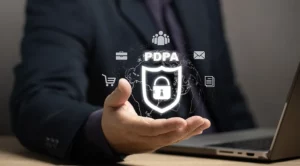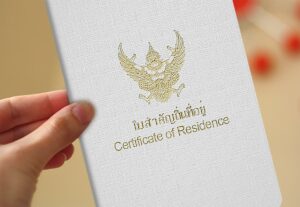Private investigation in Thailand are commonly sought for issues ranging from infidelity cases to corporate due diligence. However, Thailand’s legal environment imposes important restrictions on surveillance, evidence collection, and privacy rights.
Understanding both the capabilities and limits of private investigators (PIs) in Thailand is crucial before commissioning an investigation.
Legal Framework for Private Investigation in Thailand
Private investigators in Thailand operate in a legally ambiguous space. There is currently no national licensing system specifically for PIs, but investigators must still comply with general laws, including:
| Legal Area | Requirement or Restriction |
|---|---|
| Privacy Laws | Unauthorized intrusion into private spaces is prohibited. |
| Criminal Code | Illegal surveillance, wiretapping, or stalking can trigger criminal charges. |
| Defamation Laws | Publishing or mishandling private information can lead to civil lawsuits. |
| Employment Law | Special restrictions apply to investigating employees without their consent. |
Investigators must exercise extreme caution not to violate the Thai Constitution’s protections on personal rights and dignity.
Common Services Offered by Private Investigators
| Service Type | Description |
|---|---|
| Infidelity and Marital Investigations | Monitoring suspected cheating partners through physical surveillance and discreet evidence gathering. |
| Corporate Investigations | Employee background checks, fraud investigations, intellectual property (IP) theft probes. |
| Due Diligence | Verifying assets, business legitimacy, or financial health of individuals or companies. |
| Missing Persons | Locating individuals for personal, legal, or financial reasons. |
| Insurance Fraud Detection | Monitoring claimants to verify legitimacy of disability or injury claims. |
How Private Investigations Are Conducted
1. Initial Consultation and Contract
-
The investigator gathers detailed instructions and sets clear, legal boundaries for the investigation.
-
Written contracts are advisable to protect both client and investigator.
2. Planning and Risk Assessment
-
Each investigation must be tailored, factoring in risk of detection, legal exposure, and cultural sensitivities.
3. Surveillance and Evidence Gathering
-
Physical Surveillance: Following subjects discreetly, often using cars, motorbikes, or on foot.
-
Electronic Monitoring: GPS tracking and photography, strictly avoiding illegal wiretapping.
-
Public Information Research: Business registrations, court records, social media activity.
4. Reporting
-
Investigators compile photographic evidence, written logs, and summary reports, maintaining strict confidentiality.
Key Legal Risks for Clients and Investigators
| Risk | Description |
|---|---|
| Invasion of Privacy | Surveilling private residences or tapping communications is illegal. |
| Defamation Claims | Misuse of collected information can trigger libel or slander lawsuits. |
| Unauthorized Evidence | Illegally obtained evidence may be inadmissible in Thai courts and can backfire legally. |
Note: Clients who direct investigators to engage in illegal activities may also face civil or criminal liability.
Qualifications and Credibility of Thai Investigators
Since no formal PI license exists in Thailand, clients must vet investigators carefully.
Key credibility signals include:
-
Retired police or military personnel background.
-
References from reputable law firms or embassies.
-
Proven track record in specific types of cases (e.g., corporate vs personal matters).
-
Clear evidence-handling protocols.
Cultural and Practical Challenges in Thailand
-
Language Barriers: Most investigators operate in Thai; few are fluent in English without interpreters.
-
Urban vs Rural Surveillance: Bangkok offers easier anonymity; rural areas pose high risks of detection.
-
Cultural Sensitivities: Confrontation or exposure can escalate quickly into legal or violent conflict.
Best Practices for Clients Hiring Private Investigators
-
Demand a detailed service agreement.
-
Insist on strict adherence to Thai law — especially regarding surveillance and data handling.
-
Request sample reports or previous case outlines (with sensitive data redacted).
-
Never ask investigators to perform illegal acts (wiretapping, breaking and entering, impersonation).
Conclusion: Weighing Risks and Benefits
Private investigation services in Thailand can provide powerful tools for uncovering truth — but must be handled professionally, ethically, and within legal boundaries. Both clients and investigators must act carefully to avoid criminal exposure, wasted resources, or compromised evidence.
Before engaging a PI, clients should conduct thorough due diligence to ensure lawful, effective, and confidential operations.
You might also enjoy

Personal Data Protection Act
Personal Data Protection Act. The rapid expansion of digital commerce,

Thai Business Partnership
A Thai business partnership is one of the most commonly

Thailand Permanent Residency
Thailand Permanent Residency (PR) is a highly sought-after immigration status


